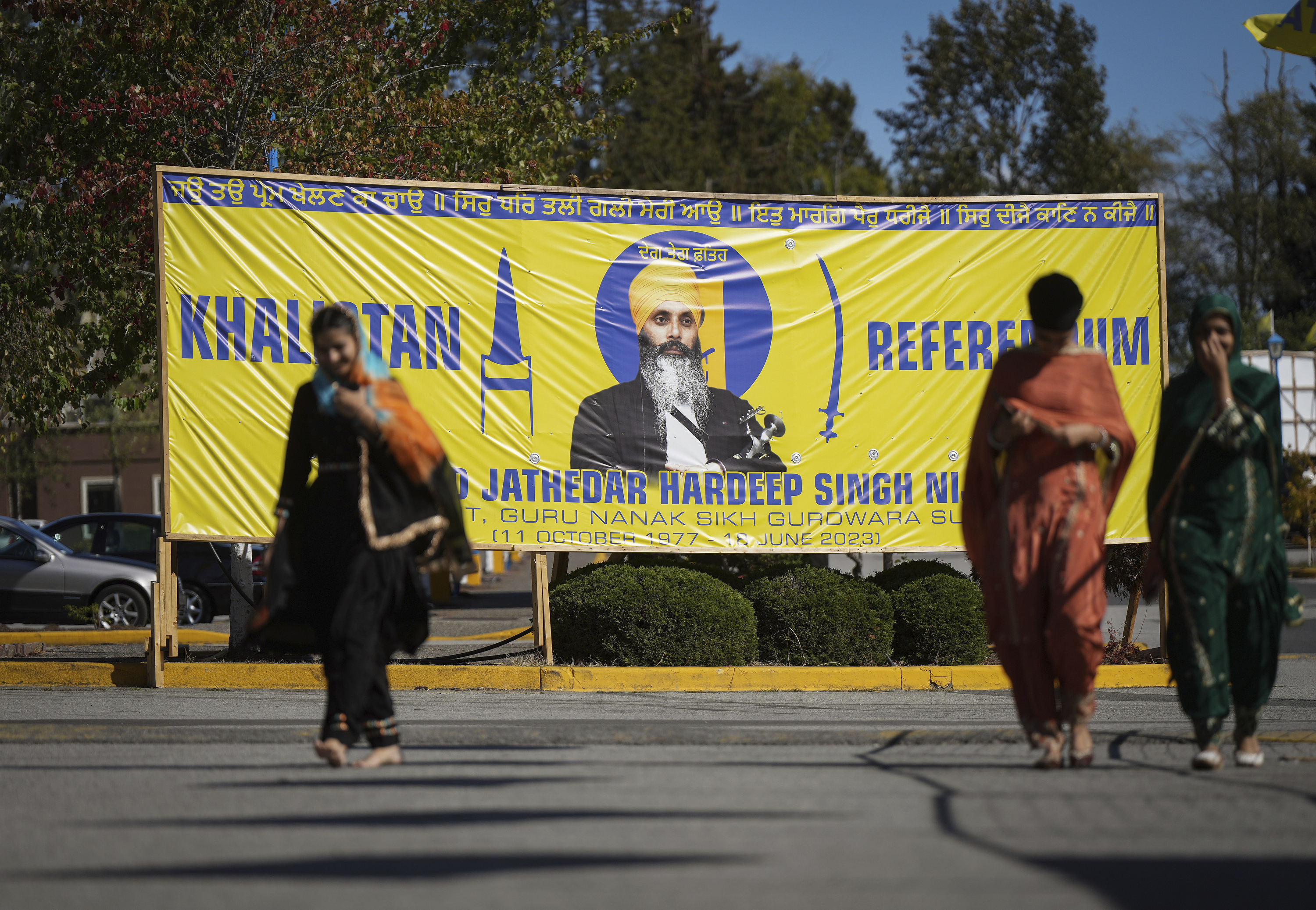

Canadian Police Make Three Arrests in Sikh Separatist Slaying That Sparked Spat With India
VANCOUVER, British Columbia — Canadian police said they arrested three suspects Friday in the slaying of a Sikh separatist leader last June that became the center of a diplomatic spat with India, and are investigating possible ties between the detainees and the Indian government.
Three Indian nationals in their 20s identified as Kamalpreet Singh, Karan Brar and Karampreet Singh were arrested in Edmonton, Alberta on Friday morning in the slaying of 45-year-old Hardeep Singh Nijjar by masked gunmen outside Vancouver, police said.
[time-brightcove not-tgx=”true”]
Canadian Prime Minister Justin Trudeau sparked a diplomatic feud with India in September when he said that there were “credible allegations” of Indian involvement in the slaying of Nijjar.
India had accused Nijjar of links to terrorism, but angrily denied involvement in the slaying. In response to the allegations, India told Canada last year to remove 41 of its 62 diplomats in the country. Tensions remain but have somewhat eased since.
The three suspects had been living in Canada as non-permanent residents, Royal Canadian Mounted Police Superintendent Mandeep Mooker said Friday at a news conference in Toronto.
“We are investigating whether there are any ties to the government of India,” Mooker said, adding that it was an “ongoing investigation.”
Royal Canadian Mounted Police Assistant Commissioner David Teboul said Canadian authorities are speaking to counterparts in India. “I would characterize that collaboration as rather challenging,” he said. “It’s been very difficult.”
The three men were expected to be transported to British Columbia by Monday to face charges of first-degree murder and conspiracy to commit murder.
Nijjar, an Indian-born citizen of Canada, was a plumber and also a leader in what remains of a once-strong movement to create an independent Sikh homeland, known as Khalistan. But he had denied allegations of ties to terrorism.
A bloody decadelong Sikh insurgency shook north India in the 1970s and 1980s, until it was crushed in a government crackdown in which thousands of people were killed, including prominent Sikh leaders.
The Khalistan movement has lost much of its political power but still has supporters in the Indian state of Punjab, as well as in the sizable overseas Sikh diaspora. While the active insurgency ended years ago, the Indian government has warned repeatedly that Sikh separatists were trying to make a comeback.
Get the latest work and career updates delivered straight to your inbox by subscribing to our magazine category today. Stay informed and ahead of the game with Subscrb.
The content on this website has been curated from various sources and is for informational purposes only. We do not claim ownership of any of the content posted here, all rights belong to their respective authors. While we make every effort to ensure that the information is accurate and up-to-date, we cannot guarantee its completeness or accuracy. Any opinions or views expressed on this website are solely those of the original authors and do not necessarily represent our own. We do not endorse or take responsibility for the content or actions of external websites or individuals linked from this website. Any reliance on the information provided on this website is done at your own risk. Please note that this article was originally seen on the source website TIME, by the author ROB GILLIES and JIM MORRIS / AP
-
SALE!




Forbes Asia Magazine Subscription
From: RM220 / year -
SALE!


Fortune Magazine Subscription
From: RM118 / year -
OUT OF STOCK




The Economist Magazine Subscription
From: RM1530 / year -


Inc. Magazine Magazine Subscription
From: RM22 / year -


Consumer Reports Magazine Subscription
From: RM22 / year -


Harvard Business Review Magazine Subscription
From: RM83 / month -


Entrepreneur’s Startups Magazine Subscription
From: RM4 / year -


BILLIONAIRE Magazine Subscription
From: RM131 / year



